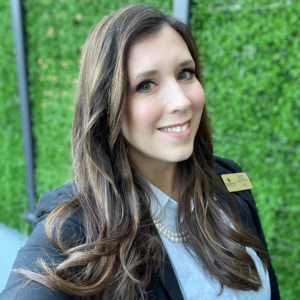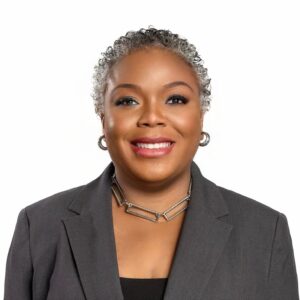Lives Well-Lived Forever Chronicled on Video
Fred, a 92-year-old in assisted living at Glacier Hills Retirement Community, Ann Arbor, Michigan, recounted with detail and enthusiasm his days playing jazz piano in a Detroit speakeasy at age 14. His audience to hear the story was a 16-year-old high school student. Fred recounted how during Prohibition he would sneak to what looked like an abandoned building. He would be “cleared” with a series of secret code words, travel under the street through a tunnel to another supposedly abandoned, boarded-up building, take an elevator to a bricked-in internal room with no windows, to play piano for five hours for mobsters and the flotsam and jetsam of the Detroit underworld in the 1920s. Fred also remembers he was very well paid.
This is just one of the remarkable stories in the lives of elders that Nice Work Public Media, an Ann Arbor, Michigan-based nonprofit, is trying to immortalize in The Legacies Project. In its fledgling stages, the goal of the project is to document the lives of elders living in long-term care facilities, and to eventually have a searchable, navigable database for gerontologists, researchers, historians, and the general public for generations to come. “Aging in America is viewed as a disease, hence collagen injections and Botox to stay forever-young. We hope to flip the definition of nursing homes as God’s waiting rooms and warehouses for older people to treasure troves of cultural wisdom and history,” says Jimmy Rhoades, one of the partners at Nice Work. The project has also been embraced by the elders who have participated as an outlet to have their life histories valued and to have people interested in hearing it.
Rhoades, business partner Jay Nelson, and project partner Dr. Heather Seipke from the University of Michigan, Flint, are pursuing funding from foundations to data tag the videos of the seniors telling their life stories. “If the information is just sitting there and there is no way to navigate it, it’s useless,” Rhoades says. “If we could have an easily navigable, online archive, we could add value to this repository of unique information for generations to come.” And that’s what makes The Legacies Project unique from other programs chronicling the lives of the Greatest Generation.
How it all started
In 1993, Rhoades’s father was diagnosed with cancer and was given six months to live. In those last six months of his father’s life, Rhoades says he began to talk to his dad “as a person with a life, rather than as my dad. I learned more about my father in those six months than I had in 26 years. He talked about his service in New Guinea during World War II, and it dawned on me that if I could get five or six other people who witnessed these same events and interview them, you could really shake out something close to the historical truth.” However, it wasn’t until 1996 when Rhoades’s favorite aunt was living in a nursing home, that the idea for the Legacies Project began to form. “I remember the halls lined with women in wheelchairs who would reach out to me and want to talk as I tried to make my way to my aunt’s room. It would sometimes take me 40 minutes to reach my aunt!” Rhoades recognized the therapeutic benefit to these women of having someone to talk to. “A light bulb went off in my head. ‘This is where elders and their stories are communicated,’ I thought. ‘Wouldn’t it be powerful to chronicle all this information and wisdom?’”
Nine years would go by before Rhoades took “a leap of faith” and founded Nice Work Productions and its nonprofit arm, Nice Work Public Media, with Nelson, his business partner, who had extensive experience in public television and in running large community outreach programs. Nelson’s connections to the College for Creative Studies, a high-end private arts school in midtown Detroit, opened the door to introducing an educational component to The Legacies Project. Nelson took an interim job at the college running the Department of Digital Media and Animation. One of the responsibilities of his position was to teach a senior-level practicum which required the students to create something tangible by the end of the semester. The Legacies Project was born.
Cross-generational education
Lahser Hills Care Center, Southfield, Michigan, agreed to host the project. Many students had never been in a long-term care facility and were scared, according to Rhoades. Before students met with residents, Wendi Middleton at the State of Michigan’s Office of Services to the Aging, suggested Henry Boutros, a long-term care consultant in the area, to give a lecture on what to expect in a nursing home, the stereotypes to overcome, what is important to residents, what not to do with residents, and how to empathize and talk to people four times their age or older. Rhoades recalls, “He had the students rub Vaseline® on safety glasses, put cotton in their ears, and tape their knuckles (arthritis) to simulate some of the physical challenges elders face.” Dr. Dennis Zembala, who had recently left his position as Director of the Detroit Historical Museum, was also brought in to help the students understand what was happening in the country and world during the time the seniors were recounting.
During the next semester, the 15 students visited Lahser Hills to interview and videotape residents’ life stories. Only residents who volunteered to be interviewed were videotaped. “At first there was some reluctance, but the seniors warmed up quickly and brought photo albums and scrapbooks with them to the interviews,” Rhoades says. The students’ first trip to Lahser Hills was without a camera and meant as a visit to build rapport. The second visit is when videotaping began. At the end of the semester, the students had 3½ hours of tape. “At first, the students’ incentive was getting college credit for honing their video literacy skills, which is important to young people today, even if it’s just to jazz up their MySpace page.” That incentive changed over time, however. Some of the students continued to visit the residents after the semester was over. Rhoades says the students described the experience as “the best thing I’ve ever done” and “transformative.” For the elders, it was therapeutic and heartwarming to have younger people interested in their lives.
Last summer, an area business underwrote internships for its employees’ high school and college age children to participate in The Legacies Project. It was an eye-opening experience for them, Rhoades says.
Little by little, the project is evolving and being refined. Working with Dr. Siepke from the University of Michigan, Flint, also a certified gerontologist, the questionnaire used during the interviews is in its third iteration. The questionnaire prompts specific topics and timeframes such as, “Tell me about growing up in your childhood home.” Dr. Seipke felt all residents should be asked the same questions to enhance the validity of the research component of the database. She was also the one who suggested the idea of archiving the thousands of hours of video the project will produce for educational, research, and historical purposes, rather than just a keyword searchable online story archive. Seipke and Rhoades are working together to find more grant money to expand the program to as many types of schools as possible. “By the fall of 2009, we hope to have funding to go to 11 schools of varying grades and in various locations in Michigan (rural, urban), and eventually roll out Legacies statewide. Our ultimate goal is to have a quarterly broadcast with PBS and become the equivalent in public television to NPR’s StoryCorps.” They also hope the long-term care industry will see the value of The Legacies Project and may help with funding.
Jimmy Rhoades can be reached at
jimmy@nicework.tv or phone (586) 201-0075.
To send your comments to the editor, e-mail mhrehocik@iadvanceseniorcare.com.
Sidebar
At a glance…
The goal of The Legacies Project is to document the lives of elders living in long-term care facilities, and to eventually have a searchable, navigable database for gerontologists, researchers, historians, and the general public for generations to come.
Sidebar
Nominate People Making a Difference
Is there someone at your facility or within the industry who you think has really made a difference in the field of long-term care? Here’s your opportunity to recognize an individual who makes an outstanding contribution in the industry. Maybe it’s someone in maintenance or management. Job titles don’t matter. Just tell us in 150 words or less why this person has made a difference in long-term care. We will choose the overall winners from these five categories: Owners/Administrators, Directors of Nursing, Certified Nursing Assistants, Ancillary Staff, and Other (consultants, lobbyists, association employees, friends of the industry, etc.). Winners will be announced and profiled in our September issue. Send in your nominations today at https://www.iadvanceseniorcare.com!
Sidebar
To view Jared Frantz’s video story, visit https://www.iadvanceseniorcare.com/Frantz.
Long-Term Living 2009 July;58(7):36-39
I Advance Senior Care is the industry-leading source for practical, in-depth, business-building, and resident care information for owners, executives, administrators, and directors of nursing at assisted living communities, skilled nursing facilities, post-acute facilities, and continuing care retirement communities. The I Advance Senior Care editorial team and industry experts provide market analysis, strategic direction, policy commentary, clinical best-practices, business management, and technology breakthroughs.
I Advance Senior Care is part of the Institute for the Advancement of Senior Care and published by Plain-English Health Care.
Related Articles
Topics: Activities , Articles











